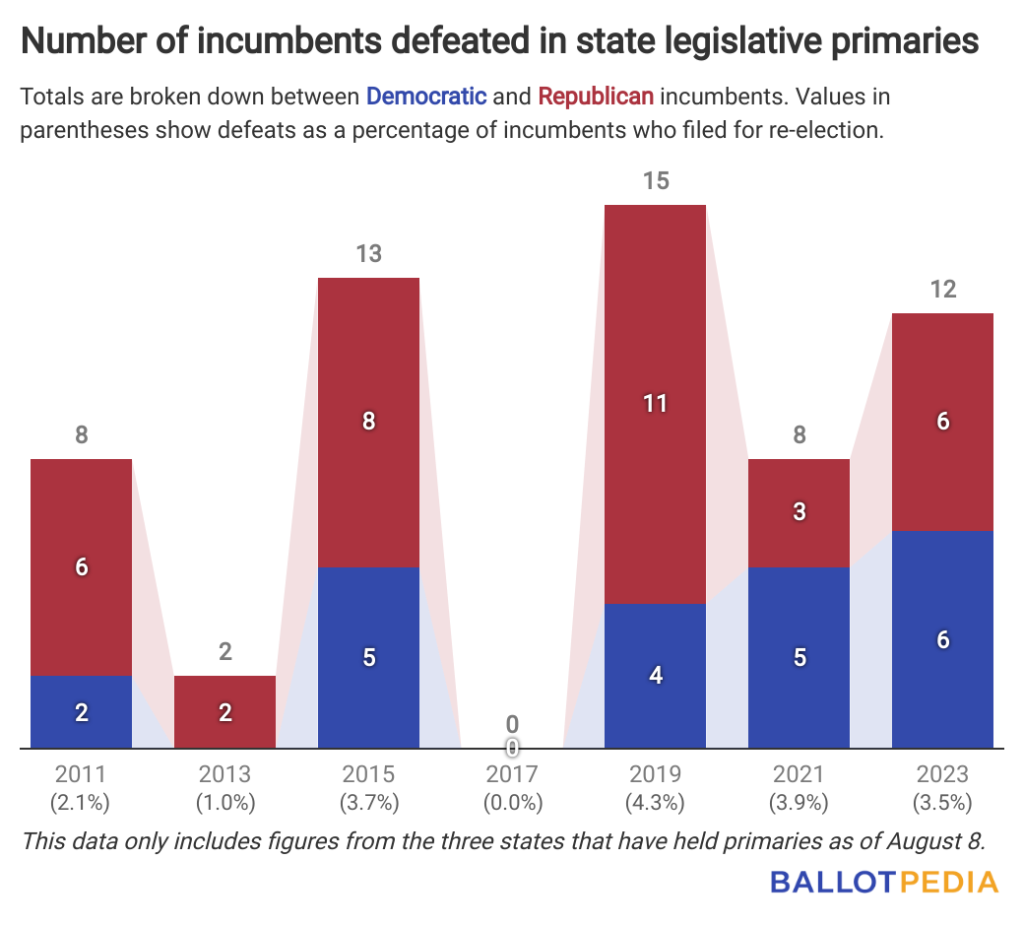As of Aug. 14, 12 state legislative incumbents—six Democrats and six Republicans—have lost to primary challengers.
Across the three states that have held primaries, 3.5% of incumbents running for re-election have lost, slightly fewer than in 2021 (3.9%).

These totals include data from both legislative chambers in Mississippi, New Jersey, and Virginia. Mississippi held its primary on Aug. 8, while New Jersey and Virginia held their primaries on June 6 and June 20, respectively.
- In Mississippi, four Republicans (three in the state House and one in the state Senate) and one Democrat lost (state House).
- In New Jersey, one Democrat lost (state Senate).
- In Virginia, four Democrats (state Senate) and two Republicans lost (one in the state House and the other in the state Senate).
Democratic incumbents have lost at a higher percentage than Republicans. Of the 150 Democratic incumbents who filed for re-election, six (4.0%) have lost to primary challengers. For Republicans, six of the 187 who filed for re-election (3.2%) have lost.

Three of these 12 incumbent losses (25%) were guaranteed due to redistricting. When states redraw legislative lines, incumbents can end up in a new district with other incumbents, leading to incumbent v. incumbent primaries or general elections. In these races, at least one incumbent must lose.
Of the three states that have held primaries so far, one has a Republican trifecta (Mississippi), one has a Democratic trifecta (New Jersey), and one is a divided government (Virginia). Across the four states holding legislative elections in 2023, there are 578 seats up for election, 7.8% of the nationwide total. This is the most seats up for election in an odd-numbered year since 2011.
The figures for 2023 are subject to change. Primaries in Louisiana are being held on Oct. 14.
Learn More






